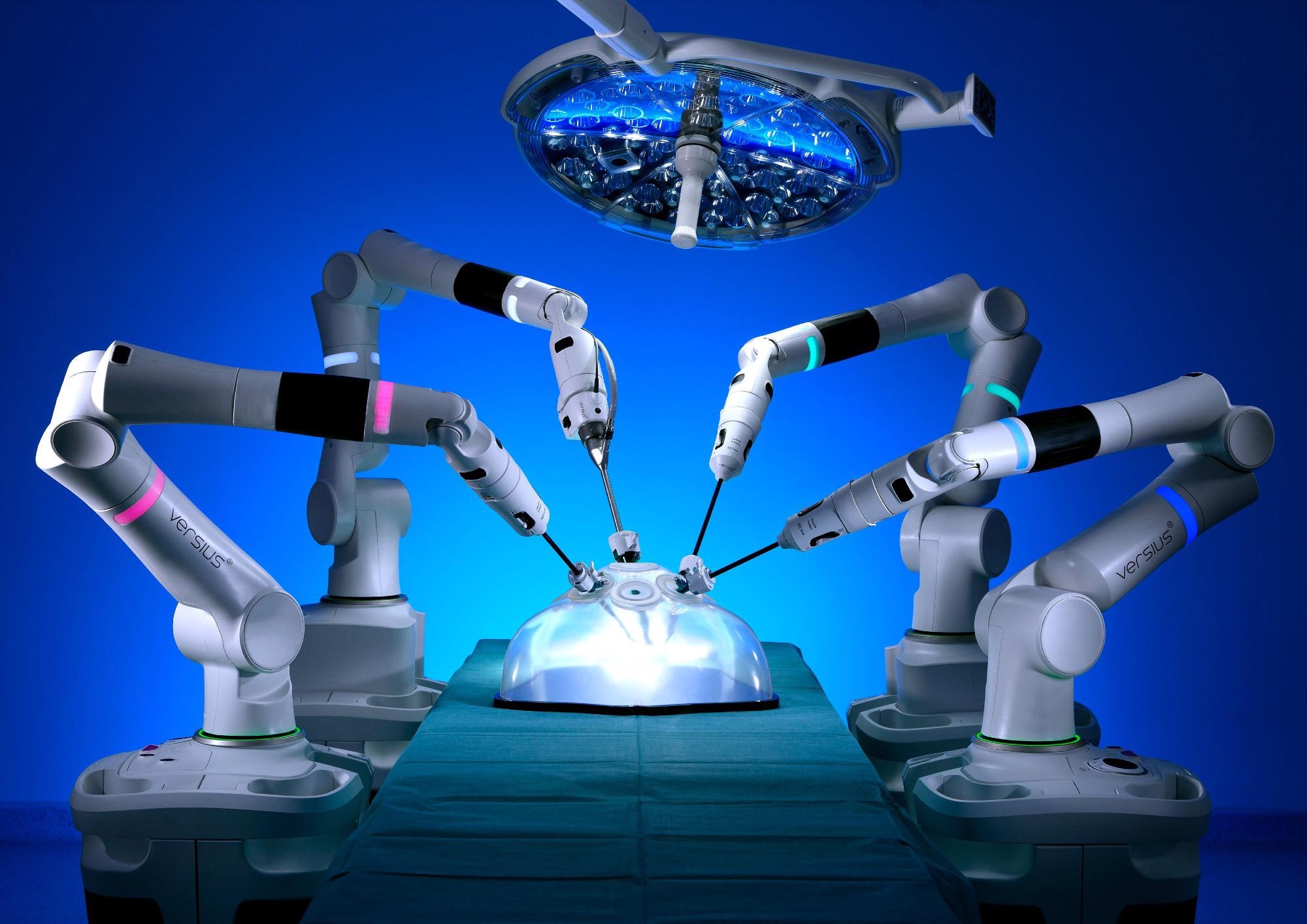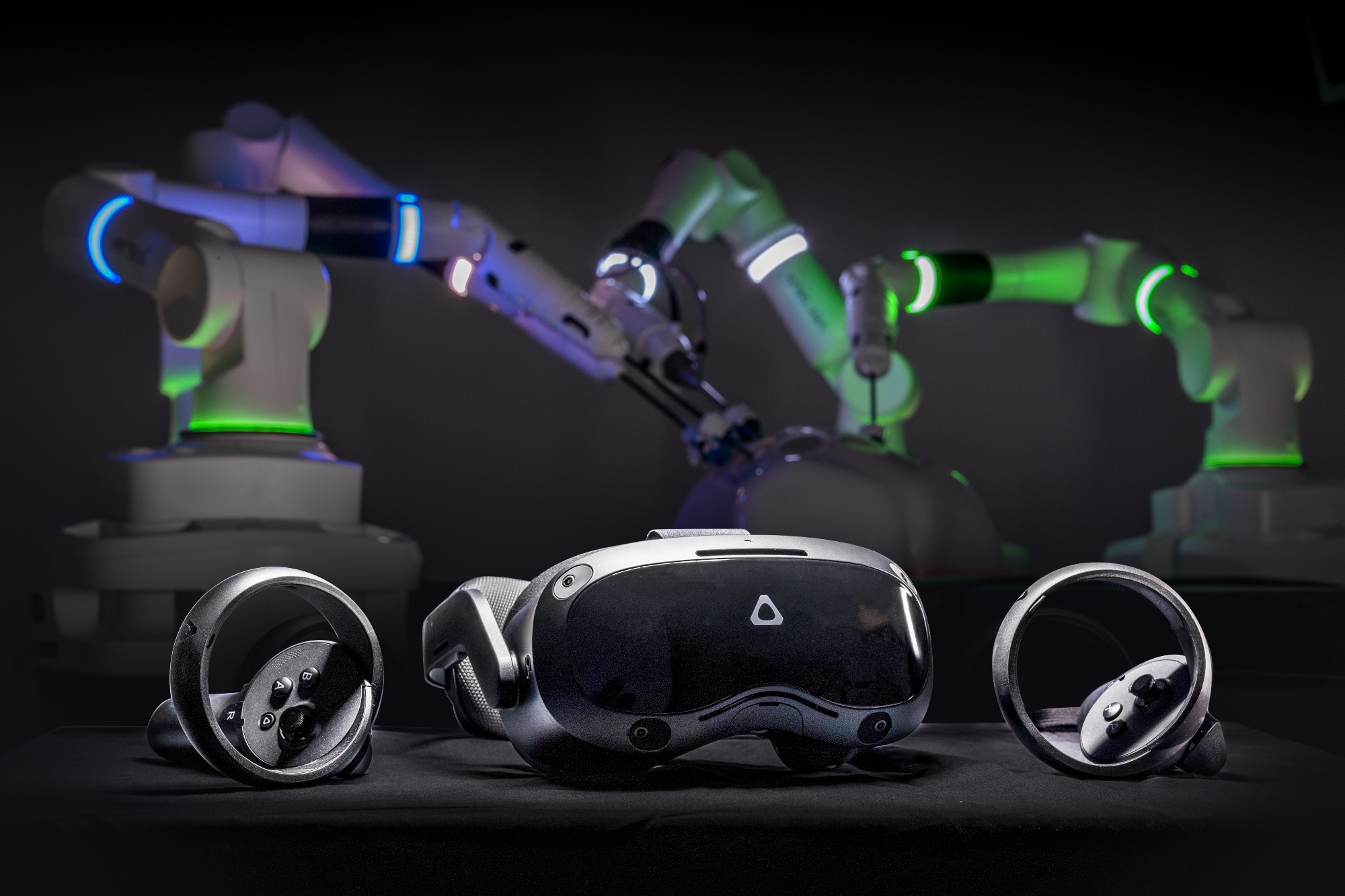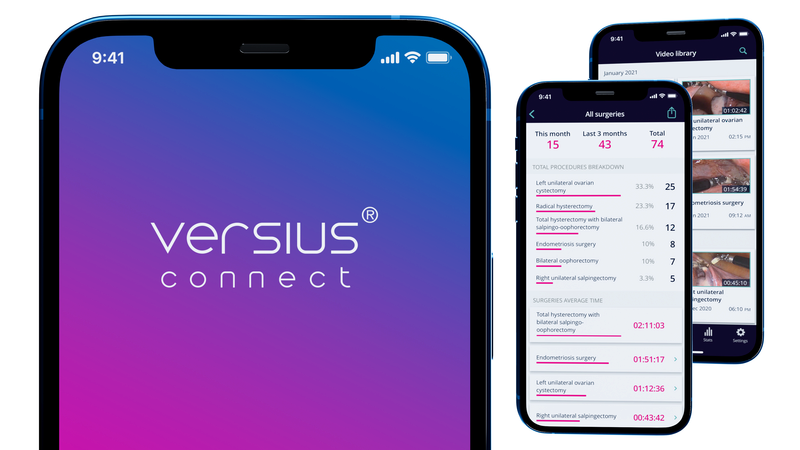In this interview, we speak to Mark Slack, Chief Medical Officer at CMR Surgical, about their next-generation surgical robot Versius and the future of robotics within healthcare.
Please can you introduce yourself and tell us about your role at CMR Surgical?
My name is Mark Slack, and as Chief Medical Officer & Co-Founder at CMR Surgical, I am actively involved in the clinical research that goes into making our robotic systems transformative for both surgeons and patients. I also lead our surgical teaching and development program, working with surgeons to train them in the latest minimal access surgery developments.
CMR Surgical aims to transform surgery for good. Can you tell us more about why CMR Surgical was founded and what some of your missions and aims are?
The truth is that we didn't set out solely to create a robot – our mission has always been to find a solution to the fact that not enough patients benefit from minimal access surgery globally. Robotic technology provides a solution to this, so we created our next-generation surgical robot. Crucially, we listened to surgeons' concerns when designing Versius to understand the challenges they face and where surgery needs to go in the future.
Our goal is to make robotic-assisted surgery more accessible globally, offering a solution with flexible and novel financing models that can work for both public and private contracts and for low- and middle-income countries.

Image Credit: CMR Surgical
You focus on minimal access surgery. What is this surgery, and what are the benefits of conducting this surgery compared to other techniques commonly observed?
Minimal access surgery (MAS) brings lots of benefits, both for the patient and the healthcare system. As it suggests, MAS requires smaller incisions, and robotic-assisted MAS means that more complex cases can be done laparoscopically, which would previously have required open surgery.
With MAS, it's widely acknowledged that patients experience less post-operative pain, complications, scarring, and opioid use, as well as a shorter inpatient stay and a faster return to normal activities. For the hospital treating that patient, shorter stays equals bed days saved – a recent case study at Milton Keynes University Hospital, which has just been published, reported that they have saved 450 bed days annually since introducing Versius.
At CMR Surgical, you have developed Versius, a next-generation surgical robot. Can you tell us more about how this robot was developed and what it is capable of?
Versius was designed to meet high clinical standards in surgery while also offering the essential versatility that hospitals need. At a time when hospitals are busier than ever, Versius provides a portable and versatile solution to help meet surgical demands. It has a small footprint and modular design, meaning that each robotic arm is independent, giving surgeons the freedom to place the ports to best suit the needs of each patient.
Surgeons can still operate the way they did laparoscopically, but with all the benefits of robotic surgery. The entire system is small and portable and can be moved easily between operating rooms or even hospitals, helping hospitals maximize utilization. Versius was also designed with an open console, enabling clear verbal and non-verbal communication between the surgeon and the full surgical team – which is essential in a busy theatre environment.
What makes us unique is our patented V-wrist technology, which allows our small, fully wristed instruments to have seven degrees of freedom which can be rotated 360 degrees in both directions by the arm. This technology, which biomimicks the human arm, has helped us make the units so much smaller than other systems. With this technology, surgeons have increased precision, accuracy, and dexterity.
We also know how demanding MAS is for surgeons, and there has been lots published about the longer-term impact of that, including a paper recently published in the Journal of Robotic Surgery reviewing an ergonomics study we carried out. It was reported that nearly 20% of surgeons would consider retiring early due to the physical impact of performing MAS, resulting in surgeons spending reduced time at peak performance before retiring or even retiring before they reach peak performance.
We designed Versius with that in mind, and our surgeons can sit or stand at the console – changing position during procedures. We truly believe that Versius has the potential to reduce the pain, stress, and fatigue experienced by surgeons when carrying out complex or lengthy operations – with the potential to help prolong careers.
Versius Surgical Robotic System | Transforming Surgery. For Good.
What benefits does using surgical robots such as Versius have not only for the surgeon and surgical team but the patients themselves also?
The benefits of MAS are widely acknowledged, some of which were discussed earlier, yet less than 50% of patients in Europe and the U.S. have access to it.
Traditional keyhole surgery is quite challenging to perform, with limited dexterity, restricted range of motion, and is physically straining and mentally challenging. Previously, cases that were too complex to perform via manual laparoscopy would have to be performed via open surgery, which is associated with longer recovery times, more pain, and an increased likelihood of return to surgery. Surgical robots like Versius provide a practical way to perform complex and strenuous surgery through MAS. Precision movements are carefully controlled, and challenging hand or wrist actions can be performed more easily and with increased dexterity.
As hospitals do more operations laparoscopically, that would previously have been open surgery, for example, hysterectomies, there are benefits for patients, who have a quicker recovery time and return to normal life, and for hospitals which frees up bed space more quickly. In the context of the demands placed on the health service and backlogs for patients and hospitals exacerbated by COVID-19, this has the potential to be a really valuable tool.
You have also recently launched VR training for the Versius Surgical Robotic System. Can you tell us more about this training program and the advantages of offering it virtually?
Versius Virtual Reality is our new virtual reality headset and professional education program, and we are proud to be the first soft-tissue surgical robotic system to offer VR training as part of its training pathway. The VR is being piloted this Spring 2022, with a global rollout planned for Summer 2022.
We are committed to proficiency-based training at CMR. We already provide online clinical resources, the Versius Trainer simulator, as well as residential and hospital support – but the VR was developed to meet the needs of the wider surgical team. We want to give surgical teams increased flexibility to practice their skills, where users are guided through learning objectives by a virtual assistant who supports them at every step.
By using virtual reality, we can simulate a lifelike and immersive experience, mimicking the real-life environment of an operating room. The wireless headset is packaged within a small box, so it's portable. This portability means that the entire surgical team, including surgical registrars and nurses, will be able to practice with Versius at a time that suits them without actually having to spend time in the operating room – which is particularly important given hospitals are under increased pressure to maximize the utilization of surgical space.

Image Credit: CMR Surgical
At CMR Surgical, you also offer the CMR Registry, a database consisting of real-time data on Versius procedures. Why did you choose to offer a database like this, and how important is it for helping to improve surgical standards?
Data is a hugely important part of the future of surgery. A benefit of surgical robotics is that we can create a digital interface between the surgeon and the patient. By this, we mean that we can collect and analyze the rich and vast data available to help us standardize surgery and enhance patient care. The CMR Registry helps us identify high performers and, crucially, analyze their techniques to identify best practices that can be shared with other users.
We have also recently released our Versius Connect 2.0 app, which provides surgeons with the data they want to see, wherever and whenever they want it, supporting a surgeon's continuous learning and development. We see Versius as part of a broader digital ecosystem, where various digital offerings are used together to create valuable data that support hospitals to improve efficiency and surgeons to deliver better patient care.
With automation and robotics becoming increasingly observed within the life sciences, what obstacles are needed to be overcome before we can see this same adoption within healthcare?
Hospitals are embracing more technology to reduce healthcare costs and improve the quality of care. They're looking to the most cutting-edge technologies to help them address demands on the healthcare system. Cost is, of course, a key obstacle to adoption, and it's important that this technology is not just available to wealthy nations. Our mission is to increase access to keyhole surgery for millions of people, and that includes in low and middle-income countries.
Another obstacle has been the space and infrastructure required by other robotic systems, as well as the challenge of providing high utilization – which is not always possible when your system is fixed within one operating room. The small, versatile, modular nature of Versius is an attractive proposition to hospitals – and will remain central to our value proposition.
You are also the Official Medical Device Partner of Paralympics G.B. What does this partnership mean for you at CMR Surgical?
The Paralympic movement, founded by a surgeon, has skyrocketed since its inception in 1948, and the Games have become one of the world's largest – and most loved – sporting events.
Inspired by ParalympicsGB, CMR is committed to celebrating the power of human ability. We see many parallels between the determination, teamwork, technological innovation, precision, and control needed by the ParalympicsGB team and by surgical teams. We are committed to making surgery better for patients worldwide – bringing the benefits of minimal access surgery to everyone who could benefit – and the ground-breaking accomplishments of the para-athletes are inspirational as we work towards achieving that mission.
Penny Briscoe - Director of Sport of British Paralympic Association
Do you believe that as technology continues to advance, we will see more robotic solutions used in healthcare? What would this mean for hospitals?
Robot-assisted surgery has been available for over 20 years, yet fewer than 3% of patients in Europe and the U.S. have access to it. So, while it's always important to look for the next solution, it's also important to focus on better adoption of the solutions we have in front of us and make sure that there is availability of more versatile forms of existing technology like Versius.
We believe that data is where we'll see the next valuable advance within surgery. Utilizing the wealth of data robotic systems like Versius offer will help to standardize surgery and enhance patient care. Integrated data capabilities can help prevent surgeons from making mistakes and provide better, objective proficiency-based training in the (standardized) delivery of surgery. We also believe robotic telemetry and remote proctoring capabilities can reduce the learning curve and increase proficiency and speed of training surgeons – and we hope to see more of this in the future.
What fields of surgery are you most interested in seeing increased robotics uptake? Which other areas of healthcare represent exciting opportunities for robotics implementation?
We are delighted that Versius is currently being used in a wide spectrum of soft-tissue specialties, including gynecology, colorectal, general, thoracic, and urology, in public and private healthcare systems worldwide. Certain design aspects of Versius, such as its modular design and small instruments, mean that we have seen it being used for surgery in hard-to-reach areas – such as in the thoracic cavity.
We are really pleased to see that cases that were previously deemed too complex to be performed via manual laparoscopy and, therefore, would have been open surgery are now being done robotically. This means that the benefits of MAS are being brought to more patients across the world. We hope we continue to see this increase in MAS across multiple soft-tissue surgical specialties.
What does the future look like for CMR Surgical? Are you involved in any exciting upcoming projects?
A key focus for us is the continued development of our digital ecosystem, including new technological developments in our app, Versius Connect, and the full rollout of our VR program. In addition to providing training for the full surgical team, we want to facilitate the sharing of best practices across countries and surgical indications; continue contributing to the scientific literature on RAS, and help establish gold standards for RAS.
We have a number of projects underway to increase our digital portfolio and expand our scope in instrumentation. Surgical teams are collecting so much valuable data from Versius. So we continue to look at how we can best use this within our digital ecosystem to standardize surgery and improve outcomes.
We are experiencing significant growth and we continue to scale rapidly worldwide as a company. As part of this, we recently announced the implementation of our new leadership structure in Europe to help us deliver this growth and meet customer needs. We are also looking to expand into new geographies and open our new global manufacturing hub.
We have a strong commitment to R&D and continue to invest heavily in this area. We're really proud to have been so innovative and disruptive. It is now part of our DNA, and we will continue to be innovative and disruptive to make sure we truly meet the needs of hospitals, infrastructure, and surgical teams – supporting them to do their job and benefit more patients.

Image Credit: CMR Surgical
Where can readers find more information?
We constantly invest in new projects, new hospital partnerships, and innovative research. You can find out more about what we're doing at https://cmrsurgical.com/news
You can also follow us on social media, such as LinkedIn and Twitter, as we are always sharing what we are getting up to as a company.
About Mark Slack, Chief Medical Officer, CMR Surgical
I had the opportunity to train as a medical doctor and gynecologist in South Africa, graduating with the Gold Medal for Obstetrics and Gynaecology for the Fellowship of the College of Medicine of South Africa. After many years as a surgeon involved with many of the innovative changes in my specialty, I transitioned to a role as Chief Medical Officer at CMR Surgical.
I am on the staff of Addenbrooke's Hospital, as well as having an academic appointment on the staff of the clinical school of medicine with the University of Cambridge, something that allows me to bring developments from the forefront of medicine to my role at CMR Surgical.